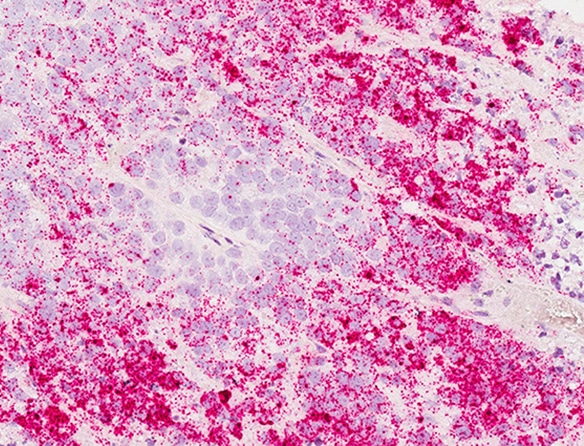Expanded Indication for a Targeted Therapy for Early Breast Cancer
The FDA approved abemaciclib with endocrine therapy for HR-positive, HER2-negative, early-stage breast cancer at high risk of recurrence.
The U.S. Food and Drug Administration (FDA) has approved abemaciclib (Verzenio) with endocrine therapy (tamoxifen or an aromatase inhibitor) for adult patients with HR-positive, HER2-negative, early breast cancer who have a high risk of disease recurrence after surgical resection.
Abemaciclib is a type of molecularly targeted therapy known as a cyclin-dependent kinase (CDK) inhibitor. It works by blocking the function of two proteins called CDK4 and CDK6, which play a role in driving cell proliferation. In 2021, abemaciclib was the first CDK4/6 inhibitor approved for the adjuvant treatment of early breast cancer, but its indication was restricted to a subgroup of patients who had a certain biomarker called Ki-67, which is associated with rapid growth. The new approval removes the Ki-67 testing requirement, expanding abemaciclib use to a broader patient population.

The expansion was based on four-year data from the phase III randomized, open-label, multicenter monarchE trial in adult women and men with HR-positive, HER2-negative, resected early breast cancer with clinical and pathological features indicative of high risk of recurrence. Patients were separated into two cohorts: Those in cohort 1 had at least four pathologic (cancer-containing) axillary lymph nodes (pALN) or one to three pALNs and either tumor grade 3 or tumor size of at least 50 mm; those in cohort 2 were not eligible for cohort 1 and had one to three pALNs and a Ki-67 score of at least 20%. Patients were randomly assigned to receive either abemaciclib plus physician’s choice of standard endocrine therapy (tamoxifen or an aromatase inhibitor) or standard endocrine therapy alone for two years.
After a four-year follow-up, the invasive disease-free survival, defined as the fraction of patients who were free from any breast cancer, was 85.5% among patients who received abemaciclib plus endocrine therapy and 78.6% among those who received endocrine therapy alone. Patients treated with abemaciclib plus endocrine therapy had a 35% reduction in the risk of recurrence or death compared to those treated with endocrine therapy alone. The difference was primarily attributed to patients in cohort 1, who represented 91% of the total number of study participants.
Although the data on overall survival are immature, in cohort 2, more deaths were observed with abemaciclib plus standard endocrine therapy than with standard endocrine therapy alone. Therefore, the approval was restricted to the indications tested in cohort 1.
It was estimated that 287,850 women would be diagnosed with breast cancer and 43,250 would die of the disease in the U.S. in 2022. Men can also develop breast cancer and represent less than 1% of breast cancer cases.
The FDA rendered its decision on March 3, 2023.
